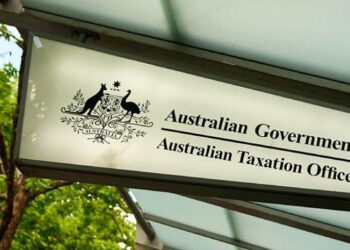Clinton Jackson, partner with Cooper Grace Ward Lawyers, says for a trust to be governed by Queensland law, it needs to at least have some connection to Queensland, including either having a Queensland-based trust deed, Queensland-based beneficiaries or Queensland-based assets.
The maximum duration of a trust, also known as the perpetuity period or vesting period, has been extended from 80 to 125 years, effective 1 August 2025. This change, introduced by the Property Law Act 2023, applies to trusts governed by Queensland law.
“The vesting date for a trust is important because it’s essentially the date on which a trust will end. What that means will depend on the particular trust itself, and the wording of the trust deed,” Jackson said.
“However, at the very least, when a trust ends, the discretionary powers that a trustee has effectively cease, and that trust becomes a fixed trust from that moment in time. “
He said, for example, that where there is a trust with a mother or father as the default or main beneficiaries, that trust will cease to be discretionary, and the ability to distribute income amongst a wide group of beneficiaries will disappear.
“Mum and dad will then receive the income from that trust each year, moving forward in their fixed percentages of 50/50, or whatever the trust deed says,” he said.
“In addition to that, some trust deeds require all the assets to be gathered in and distributed out to the beneficiaries. So, we have no ability to keep that trust running, even in that more limited, fixed trust type concept. That means that we will be transferring all the assets from the trusts to the beneficiaries, which will potentially trigger tax and duty consequences.”
He continued that the maximum permitted perpetuity date or vesting date for a trust in all states and territories other than South Australia is 80 years. However, from 1 August 2025, Queensland will have a new vesting period of 125 years.
“However, that 125-year period will not automatically apply to a trust, or most trusts, and that is because the trust deeds themselves set out the actual vesting date for the trust, in most situations,” he said.
“For existing trusts, they will usually have either an 80-year period, or some earlier date because you can have an earlier date if that is what’s specified in the trust deed. And some trust deeds that we’ve seen, even from the mid-80s or so, have 40, 50 or 60-year vesting dates. You should check those carefully and probably quickly, and extend them where appropriate.”
He continued that once a trust has passed the hurdle of having a Queensland base, it is then important to look at what the trust deed says.
“A trust deed will most likely have an earlier vesting date based on the past law. So, where a trust deed does have an earlier vesting date, you then need to look at taking additional steps, as to whether it’s possible to upend.”
“Assuming you have a Queensland-based trust for which Queensland laws apply, you then need to check to see whether it’s possible to amend the vesting date of that trust.”
Jackson said first consider the variation power, noting that many trust deeds do have broad variation powers, which would be sufficient to allow for the extension of the vesting date by a way of simple variation.
“Where that’s the case, you would prepare that variation deed and get it signed by one of the parties. However, there are some trust deeds out there that do not have a broad enough variation power, and you need to be careful about this because if the variation power is not broad enough, then any variation deed prepared to extend a vesting date will be invalid.”
“However, it doesn’t stop there, and there may be some other options available, under the new property law act, which introduces this 125-year vesting date rule, they have included a specific provision that allows all the beneficiaries of the trust to agree to extend the vesting date, even if it is outside the variation power.”
He added that for some trusts, where there are limited beneficiaries, this will be more practical and cost-effective. However, for a normal broad-based family and discretionary trusts that have a wide range of beneficiaries, that rule will most likely be impractical to use.
“Where that’s the case, you need to look at what other options are available, and there is always the option of applying to the Supreme Court of Queensland, to have them authorise a variation of trusts.”


